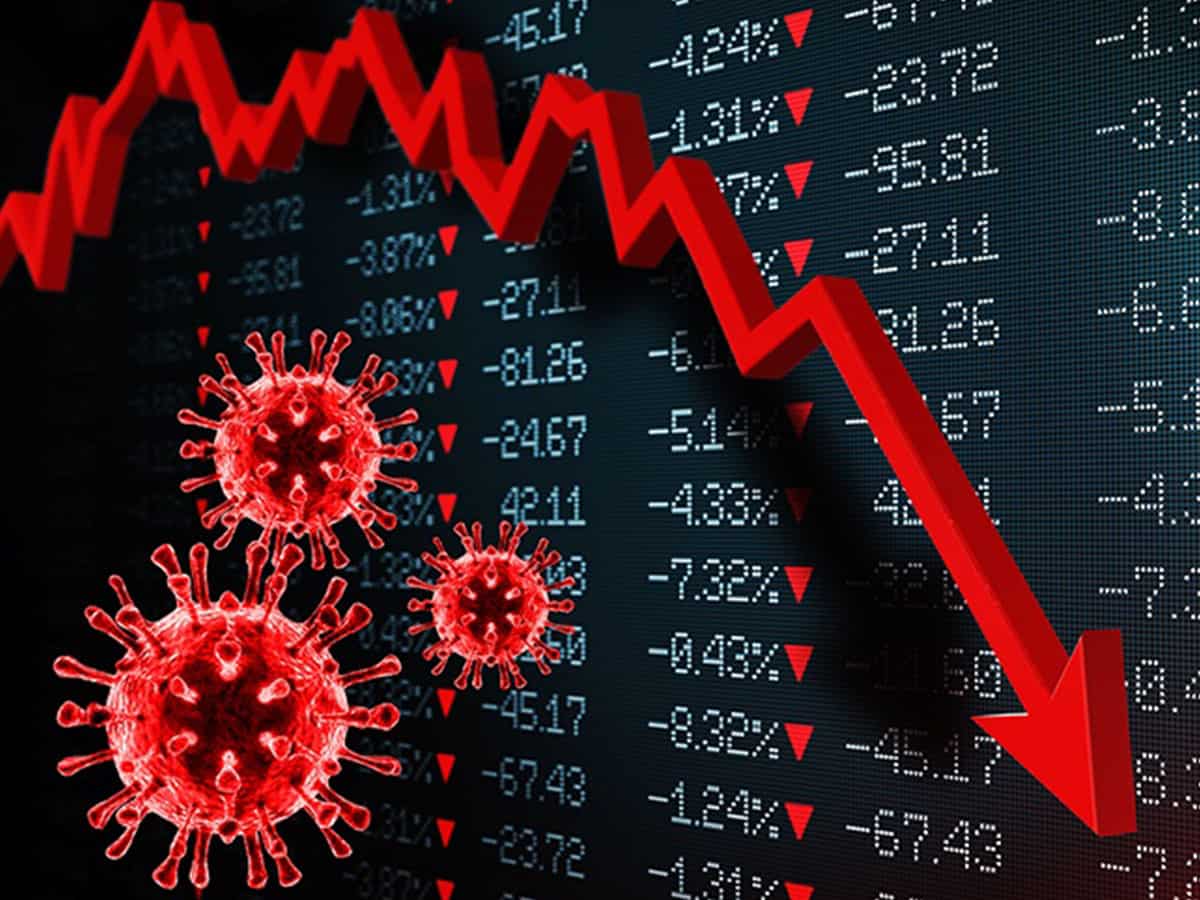
It is human tendency to take credit when something gets success and, if it goes wrong, simply pass the buck.
Union Finance Minister, in a meeting of GST council held on 27th August, referred to the novel coronavirus (COVID-19) pandemic as an “act of God” and blamed it for the contraction of the economy in the current fiscal year. Then, quickly criticizing her remarks, former finance minister P Chidambaram said, “Don’t blame God. In fact, you should thank God. God has blessed the farmers of the country. The pandemic is a natural disaster. But you are compounding the pandemic, a natural disaster, with a man-made disaster.”
While Brazilian President Jair Bolsonaro denied the seriousness of coronavirus pandemic, advice of health officials to the leadership at the top is clear. “We call on country leaders to mobilize their plans, coordinating every part of government, not just the health ministry – security, diplomacy, finance, commerce, transport, trade, information and more– the whole government should be involved in tackling Covid-19,” says Dr Tedros Adhanom Ghebreyesus, the WHO (World Health Organisation) director general.
And the WHO opinion on COVID-19 is that it can be slowed down significantly if the countries and communities awaken and take steps through the implementation of robust containment and control activities. This is also the world-wide opinion of doctors, but when we ask a common man about his opinion on COVID-19 pandemic and the future, he simply says that “I will do this or that for livelihood and there will be this crisis for a year or two more.”
But we need to really think of the impact of this crisis and how the people have to live without government’s help. The government of any state or country bears the ultimate responsibility. The administrators need to understand that the crisis brought about by Corona could be man-made or natural, but it is their duty to work to contain it and bring the people out in good condition.
People elect their representatives or the government of handful people is installed at the top to govern the entire nation and it is just not for the allocation of resources or welfare and development activities but also to guide the nation in times of distress. This global pandemic is once-in-100-year affair like the last time in 1920s the Spanish influenza shook the world.
Then, it was 500 million plus estimated cases and 5 million deaths caused by Spanish influenza and now the COVID-19 tally so far is 30 million cases and 950,000deaths so far [lesser than the last time]. But the government should be prepared for such once-in-a-century disaster as it is recurring one and should not simply pass the buck or wash its hands.
With India overtaking USA and Brazil in daily tally of cases and deaths, though our cumulative tally of 5.22 million active cases is lesser than USA and our count of 85,000 deaths is lesser than USA and Brazil, it is really a serious situation. The Union government should search for ways to raise the resources instead of leaving it to the State governments to fend for themselves.
Recently, the Lok Sabha passed a bill to cut salaries of all MPs by 30 per cent for a year to meet the exigencies arising out of COVID-19 pandemic. The Salary, Allowances and Pensions of Members of Parliament (Amendment) Bill, 2020 was unanimously passed by the members of the Lower House. This seems to be a good move but the government should not consider cutting the salaries of the government employees. The Union government should also actually bear the brunt of Covid impact and borrow extra on its own and pay the full compensation of GST losses to the States.
In April, the government decided to suspend the MPLADS for two years for meeting the Covid expenditure. The MPLADs is the Centrally-funded scheme that enables the MPs to recommend works in their constituencies up to Rs 5 crore per annum. Now, when we compare these two moves, it looks relevant in the current situation but these moves run opposite to each other. Taking away the MPLADs funds, which the government now wants to be transferred to the Consolidated Fund of India for utilizing for Covid, is not a good idea.
The Union government can raise the funds for Consolidated Fund of India by different means. But the government needs to understand that the MPLADs scheme is meant for development works and welfare of the people and so it can go a long way for taking up minor works in respective constituencies. And if the lump sum amount is transferred to the Consolidated Fund of India, then it will not be allocated for one area and can be allotted for different purposes. On the other hand, the MPs should also strictly utilize the funds for the welfare of the people and not divert the same elsewhere. Hence, the government should reconsider its decision to suspend the MPLADs and restore it with immediate effect.
The Union government is raising funds for PM CARES Fund through contributions from NGOs and philanthropists from all over the world. The Union Government can avoid huge expenditure by not taking up the Rs 20,000 crore Central Vista project and the Rs 25,000 crore new Parliament complex. The government can also stop the Ayodhya temple construction for the next two years in view of COVID-19. The pending development projects, which do not need immediate allocations, can also be halted and resumed when the economy is back on tracks. Thus, there are various ways in which the Union government can save a big deal and earmark the resources for tackling Covid impact.
Fatima Hasan is a Hyderabad based journalist

